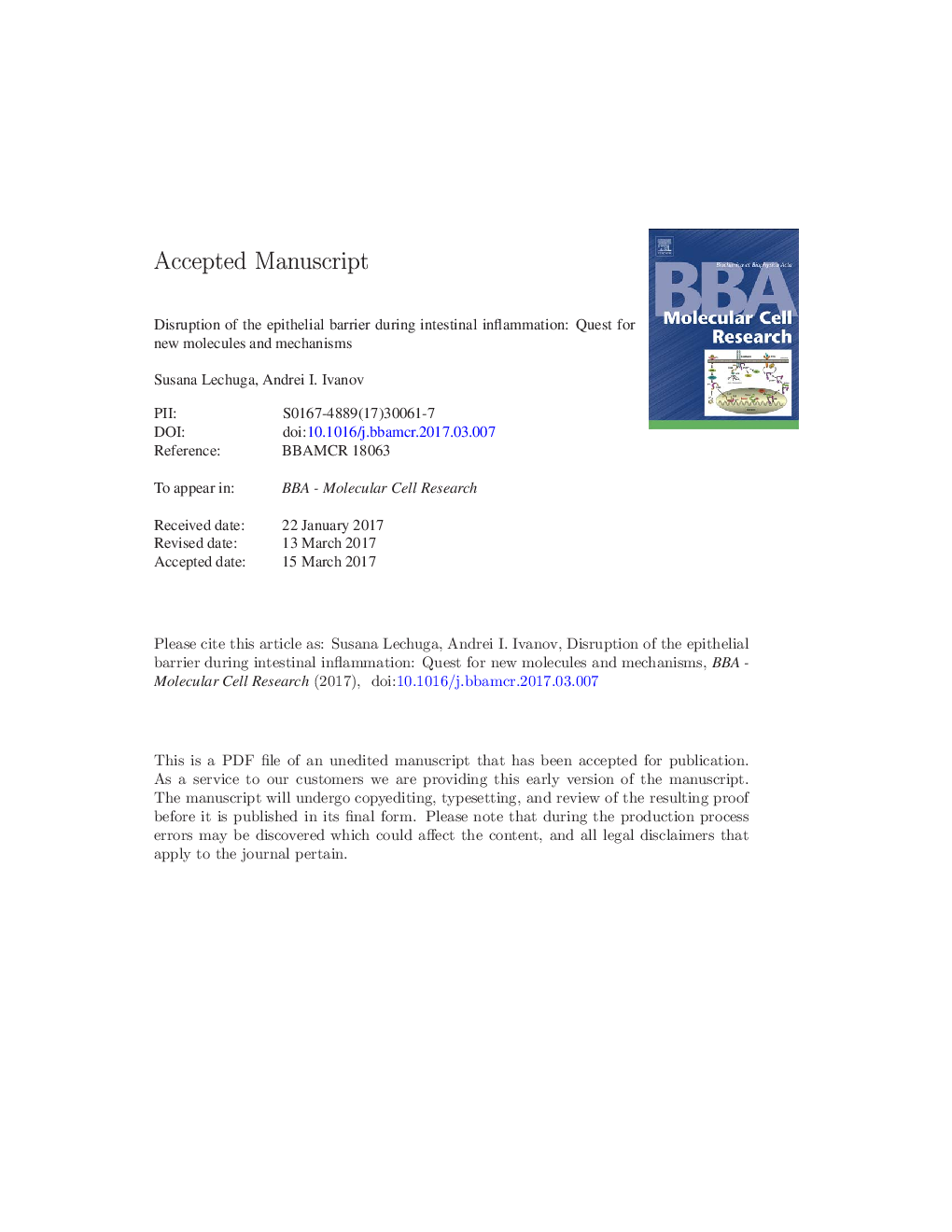| Article ID | Journal | Published Year | Pages | File Type |
|---|---|---|---|---|
| 5508619 | Biochimica et Biophysica Acta (BBA) - Molecular Cell Research | 2017 | 54 Pages |
Abstract
The intestinal epithelium forms a key protective barrier that separates internal organs from the harmful environment of the gut lumen. Increased permeability of the gut barrier is a common manifestation of different inflammatory disorders contributing to the severity of disease. Barrier permeability is controlled by epithelial adherens junctions and tight junctions. Junctional assembly and integrity depend on fundamental homeostatic processes such as cell differentiation, rearrangements of the cytoskeleton, and vesicle trafficking. Alterations of intestinal epithelial homeostasis during mucosal inflammation may impair structure and remodeling of apical junctions, resulting in increased permeability of the gut barrier. In this review, we summarize recent advances in our understanding of how altered epithelial homeostasis affects the structure and function of adherens junctions and tight junctions in the inflamed gut. Specifically, we focus on the transcription reprogramming of the cell, alterations in the actin cytoskeleton, and junctional endocytosis and exocytosis. We pay special attention to knockout mouse model studies and discuss the relevance of these mechanisms to human gastrointestinal disorders.
Keywords
IBDAIP1IFNγADFABPIBSARPJAM-AJunctional adhesion molecule Aactin-related proteinsCEDRmlCSmall interfering RNAsiRNAinterferon γinterleukinCeliac diseaseCrohn's diseaseInflammatory bowel diseaseTampendoplasmic reticulumactin-depolymerizing factorNon-muscle myosin IIMARVELCARRaceElectron microscopyActin-binding proteinRho-associated kinaseRock
Related Topics
Life Sciences
Biochemistry, Genetics and Molecular Biology
Biochemistry
Authors
Susana Lechuga, Andrei I. Ivanov,
